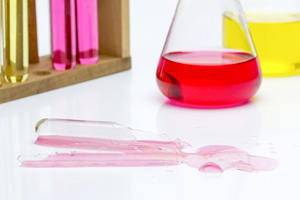Top state court tells DAs to review 20,000 cases linked to lab scandal, decide which ones to toss

The top court in Massachusetts refused on Wednesday to order wholesale dismissal of more than 20,000 criminal cases linked to a chemist who faked drug test results to favor the government.
Instead, the Massachusetts Supreme Judicial Court took a middle ground in adopting a procedure to dismiss many of the cases and retry others, report MassLive.com, the Boston Herald and the Boston Globe. A press release by the American Civil Liberties Union is here. The Legal Profession Blog links to the decision (PDF).
The ruling gives district attorneys 90 days to notify courts about the drug convictions they intend to vacate and dismiss, and the convictions they intend to let stand. Prosecutors should vacate and dismiss cases they would not or could not retry is a new trial were ordered, the court said. Cases they are willing to retry should be supported by independent evidence.
After the 90-day period, prosecutors have 30 days to notify the defendants in cases they don’t plan to vacate. The notice should simplify the process for the defendants to move for a new trial, partly by including a hotline number staffed by a public defender.
The court warned that, unless prosecutors move to vacate and dismiss large numbers of affected cases, the number of indigent defendants seeking counsel could outstrip the supply. If that happens, the court would have to adopt an appropriate remedy, which would likely be dismissal without prejudice of the challenged drug convictions, the opinion said.
Before the decision on Wednesday, the onus was on defendants to appeal their cases if they thought they should be dismissed. About 21,000 notices had previously been sent to defendants whose convictions were based on the chemist’s evidence. Court filings suggest fewer than 2,000 defendants sought or received relief from their convictions, Pro Public has reported.
Matt Segal, legal director of the ACLU of Massachusetts, praised the decision on Wednesday. “This has been a years-long saga, and this is really a crucial breakthrough for the thousands of people who were convicted based on tainted evidence,” he told the Boston Globe.
The chemist, Annie Dookhan, pleaded guilty to charges that included obstruction of justice, perjury and tampering.
Related articles:
ABAJournal.com: “Top state court should toss 24,000 convictions connected to disgraced chemist, ACLU says”
Pro Publica: “Defense lawyers say prosecutors have dragged their feet on redressing wrongs of faked lab evidence”



